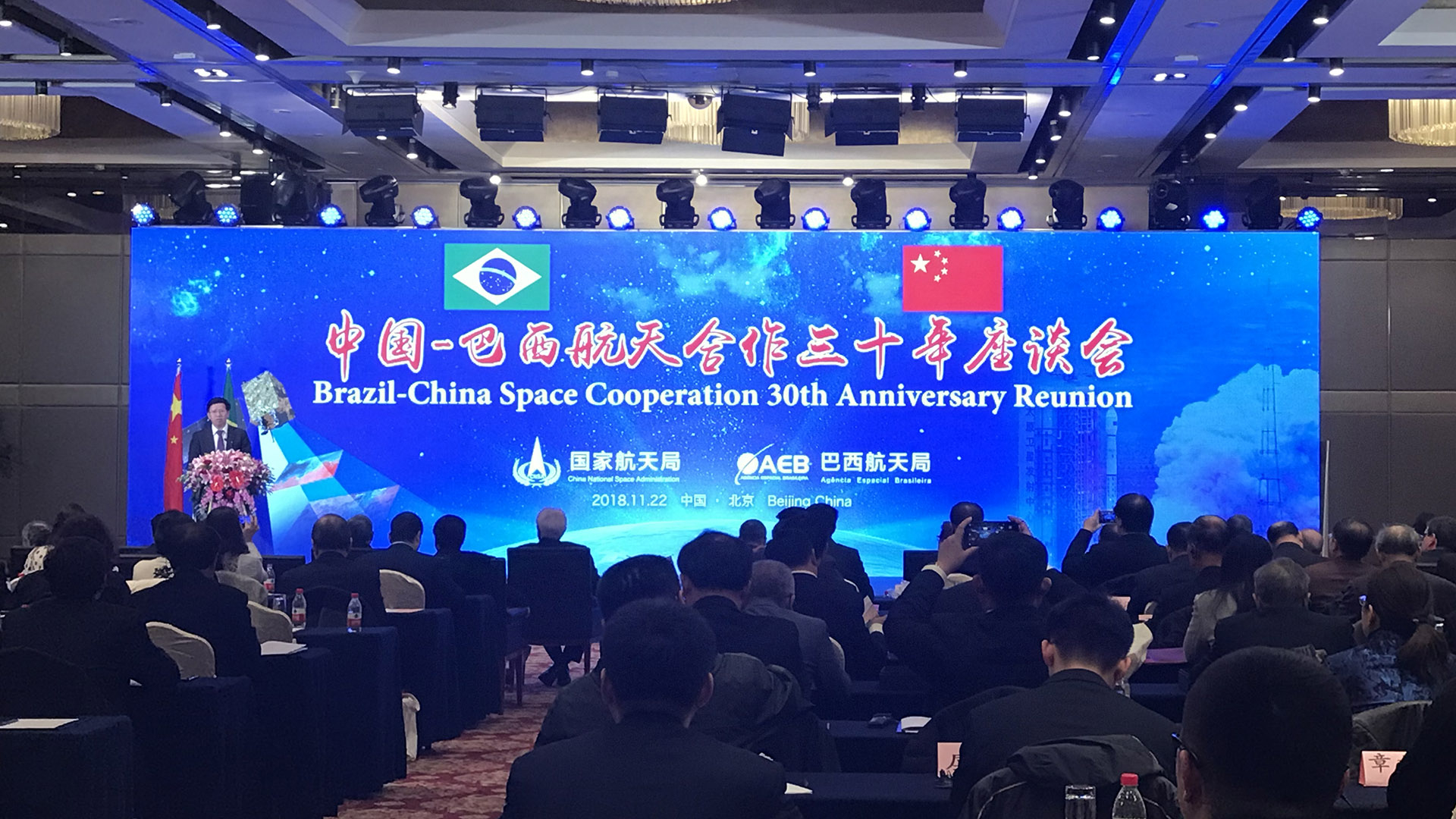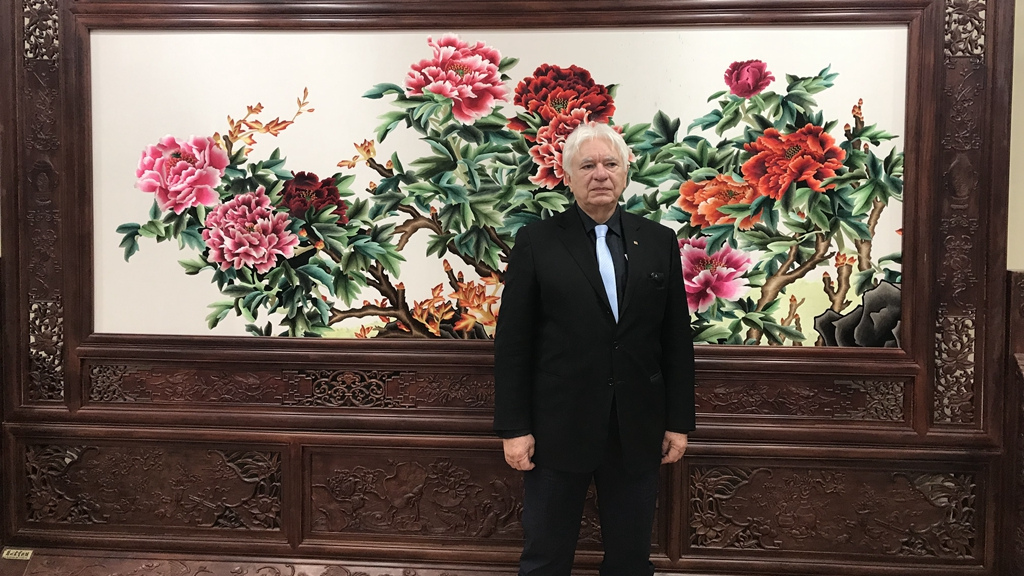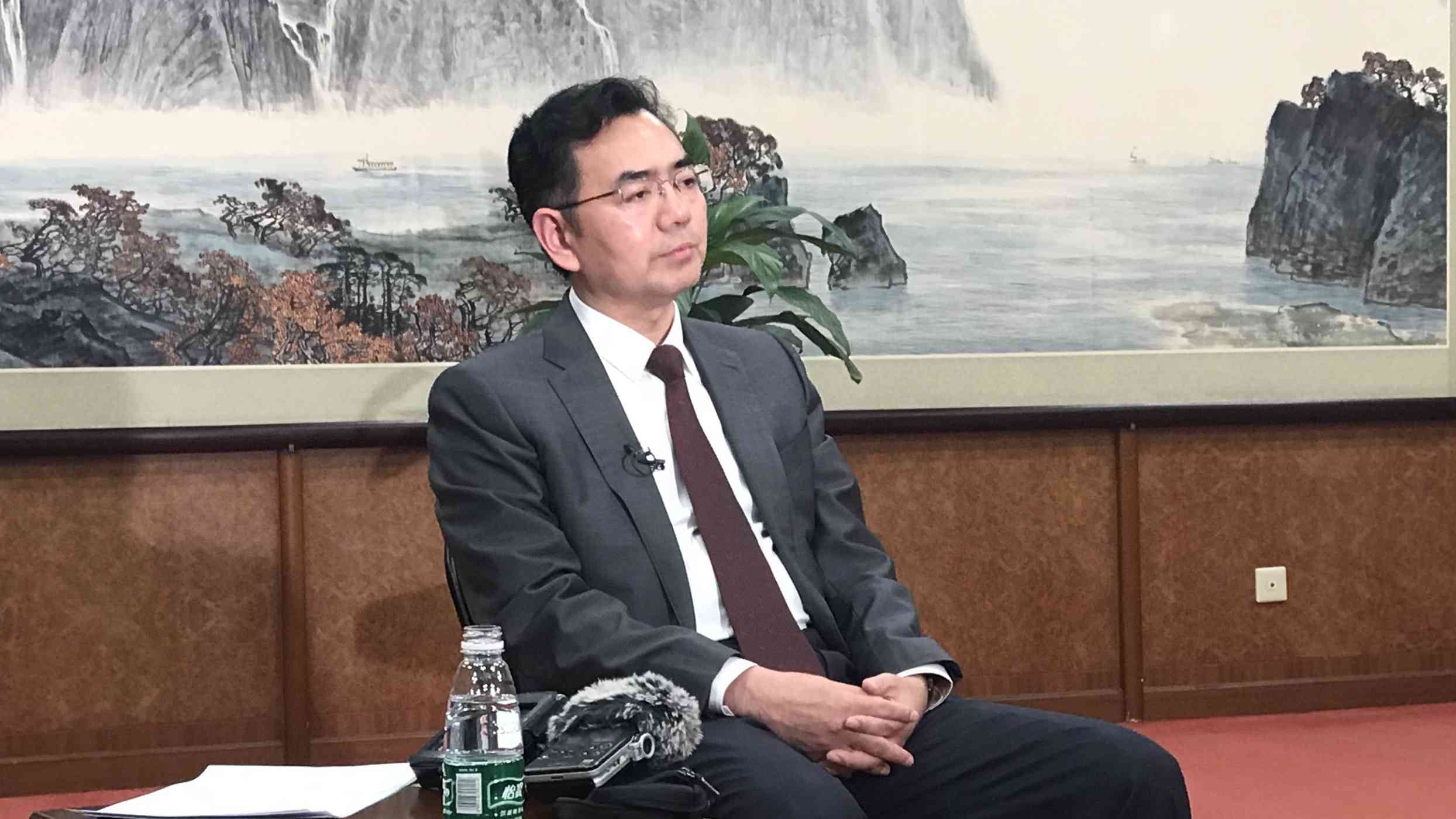
Space
16:27, 22-Nov-2018
Three decades of China-Brazil space cooperation promotes common development
Updated
15:57, 25-Nov-2018
By Zhao Kunlun
02:43

China and Brazil are marking 30 years of space cooperation this year. For many, the highlight of their work during this time was the development of six Earth resources satellites, or CBERS. On November 22, the two national space agencies held events in Beijing to mark the milestone, review their achievements and look to the future.
Dating back to 1988, the two developing countries, with limited resources, agreed to work together to develop Earth satellites despite their differences and difficulties. For nearly a generation, they have made notable achievements through their cooperation. José Raimundo Braga Coelho, president of Brazil's national space agency (AEB), noted that their success was no accident, but a result of following the fundamental principles of international cooperation.

José Raimundo Braga Coelho, president of Brazil's national space agency. /CGTN Photo
José Raimundo Braga Coelho, president of Brazil's national space agency. /CGTN Photo
"First of all, you have to choose an object of mutual interest; second, you can develop together, you can work together, to develop this object. So with two principles, we have been very successful in our collaboration."
Among the CBERS program, four satellites have been successfully launched into space and have come into service. But scientists hope they can be used to serve the world.
Raimundo thought that the CBERS should be used as a platform to give the program international prestige. It started from China and Brazil, then extended to BRICS members and many other countries alike.
Now in South Africa and Singapore, special Earth stations are receiving data from CBERS. In addition, it can provide data for Latin American countries and ASEAN countries, for support and service in terms of disaster prevention and mitigation, forest assessment and land resources exploration.

Li Guoping, general secretary of China National Space Administration. /CGTN Photo
Li Guoping, general secretary of China National Space Administration. /CGTN Photo
After 30 years of joint efforts, the two parties have reached a consensus on where to take their cooperation next. “Our scientists have established a joint lab for space study in Brazil. Through their geographic position, we will monitor the climate together. Brazil is also interested in China's Beidou Guiding System. We plan to cooperate in this area,” says Li Guoping, general secretary of the China National Space Administration.
The world lies in the hands of those who not only have the courage to dream but dare to live out their dreams. Scientists and technicians from the two countries have witnessed their original dream coming true. Many experts at the Beijing event agreed that their strategy should encourage others to reciprocate, and work together for the sustainable development of the Earth.

SITEMAP
Copyright © 2018 CGTN. Beijing ICP prepared NO.16065310-3
Copyright © 2018 CGTN. Beijing ICP prepared NO.16065310-3